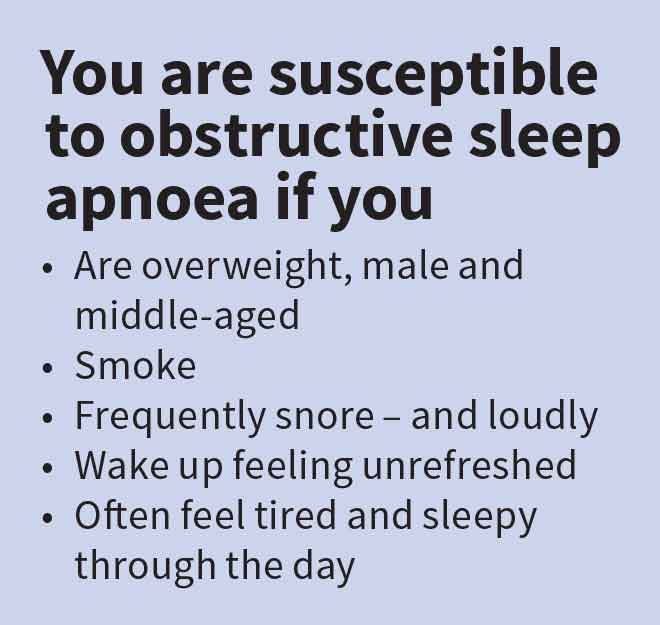Dr Toh Song Tar, Senior Consultant from the Department of Otolaryngology, SGH, and Dr Mok Yingjuan, Consultant, Department of Respiratory and Critical Care Medicine, CGH, explain the diabetes and obstructive sleep apnoea (OSA) link.
If you have type 2 diabetes, there is a chance that you might also be suffering from obstructive sleep apnoea (OSA), a sleep disorder in which the patient experiences pauses in breathing and loud snoring throughout the night.
Diabetes and OSA: How they affect each other
No firm link has been established, but studies have suggested an association between the two conditions:
people with diabetes tend to have OSA, and vice versa.
People with diabetes that have OSA also tend to have a poorer ability at controlling their blood sugar levels. Still, people suffering from either condition should be wary of the possibility of the other developing, doctors from the SingHealth Duke-NUS Sleep Centre warned.
“We know that lots of patients with OSA may not know they have OSA, including those with diabetes. If their OSA isn’t treated, their diabetes may not be well controlled,” said
Dr Toh Song Tar,
Senior Consultant from the
Department of Otolaryngology, and Director of the
Sleep Disorders Unit at
Singapore General Hospital (SGH), a member of the
SingHealth group.
“We have patients whose glucose was not well controlled, but once their OSA was treated, their blood sugar control improved,” added Dr Toh,
who is also Head of the
SingHealth Duke-NUS Sleep Centre.
Obesity: The common risk factor for Diabetes and OSA
People who are overweight have a greater chance of developing OSA. This is because fat tends to get deposited around the neck or soft tissue of the upper airways, leading to a narrowing of the airways and subsequent development of OSA. They are pulled out of deep sleep repeatedly during the night when airflow is blocked – this automatic response prompts the person to wake so that the airway reopens for normal breathing.
“They get sleep deprivation, which sets up a whole cascade of endocrine abnormalities that predisposes someone to take in more high caloric food. Bingeing on food leads to obesity again, and alters the glucose metabolism again,” said Dr Toh.
The body responds to the periodic falls in blood oxygen levels – or intermittent hypoxia – in a number of ways, which together affect glucose metabolism and insulin sensitivity, said
Dr Mok Yingjuan,
Consultant from the
Department of Respiratory and Critical Care Medicine at
Changi General Hospital (CGH) and Director of Epidemiology and Public Health at SingHealth Duke-NUS Sleep Centre, also members of the SingHealth group.
“The existence of a link between OSA and diabetes would not be surprising because both share a common risk factor: obesity,” said Dr Mok.
Weight increase raises OSA risks
A 10 per cent increase in weight has been shown to cause a six-fold increase in the risk of developing OSA, while a weight gain of 5kg or more significantly increases the risk of developing diabetes, Dr Mok said, citing various studies done overseas.
Singapore has the second highest incidence of diabetes among developed countries, after the United States. According to 2015 statistics from the International Diabetes Federation, nearly 13 per cent of those aged 20 to 79 in this country have diabetes.
At the same time, data from the Singapore Health Study 2012, a cross-sectional population study conducted on adults aged 21 to 79, estimated that 18 per cent of Singapore’s adult population have OSA.
Singapore’s diabetes rate is expected to worsen with more young adults getting obese: 35 per cent of people between 25 and 36 years of age can be expected to be diabetic by the time they are 65.

Ref: M19
